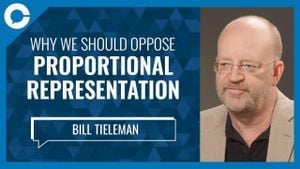Taiwanese President Lai Ching-te recently commenced his significant Pacific trip, a move aimed at bolstering Taiwan's diplomatic relations and addressing regional tensions, especially concerning the ever-looming threats from China.
Embarking on this diplomatic venture, Lai's itinerary includes visits to key allies such as the Marshall Islands, Tuvalu, and Palau, with notable transit stops at Hawaii and Guam. The trip was kicked off with remarks made at a banquet hosted by members of the Taiwanese expatriate community in Honolulu, where he expressed gratitude for their unwavering support. He emphasized, "Taiwan's democracy is a model for the international community, and our technologies and economy can help the world achieve progress." His optimism echoes throughout his talk where he asserted, "so long as Taiwan maintains solidarity and works hard, we can certainly overcome all manner of difficulties."
President Lai's Pacific trip is especially significant as it marks his first engagement with these allies since he took office on May 20. Meeting with Governor Josh Green of Hawaii and members of the U.S. Congress, Lai highlighted the importance of collaboration and mutual support, reinforcing Taiwan’s commitment to maintaining peace and security within the region.
Notably, Lai's visit included meaningful moments such as accepting symbolic gifts — the U.S. flag and Hawaii state flag — from Hawaiian Congress members, reflecting the strong friendship between Taiwan and the U.S. The exchange underscored Taiwan’s increasing visibility and importance on the international stage.
Beyond just ceremonial gestures, Lai's trip served as a platform for addressing serious issues, particularly China's expansive military threats. During the trip, he shared concerns about China's military posturing and discussed strategic initiatives with U.S. lawmakers, including renowned figures like former House Speaker Nancy Pelosi. Their conversation, described as "warm and amicable," centered around the enduring support for Taiwan amid increasing international pressures from Beijing.
China has been increasingly vocal about its displeasure toward Taiwan's international engagements, especially those supported by the U.S. Their foreign ministry reacted strongly to Lai's visit and discussions with U.S. officials, characterizing U.S. arms sales and the Philippine stopovers as meddling. "The Taiwan issue is the core of China's core interests and the first red line," said foreign ministry spokesman Lin Jian, asserting the delicate balance of international relations influenced by the Taiwan-China dynamic.
While Lai was making diplomatic strides, the backdrop of his trip significantly involved arms sales. Just prior to Lai's departure, the U.S. cleared the sale of spare parts for Taiwanese F-16 jets, worth approximately $385 million, signaling strong military support for Taiwan. This sale raised eyebrows and ire on the Chinese front as they issued stern warnings against U.S. involvement.
Lai's Pacific trip is not merely symbolic. Instead, it reflects Taiwan's strategic maneuvering and determination to maintain its sovereignty and security against increasing military and political threats from China. During the overseas banquet, Lai was quoted addressing the current geopolitical stance, stating, "We must fight together to prevent war; there are no winners from conflict." This assertion encapsulates the difficulties surrounding Taiwan's geopolitical reality — the constant threat of aggression from mainland China, contrasted with the support it receives from allies like the United States.
Time will reveal the outcomes of Lai's diplomatic initiatives. What stands clear is the fervent desire among Taiwanese leadership to solidify alliances, garner support and bring attention to their cause. Lai's efforts are indicative of broader diplomatic trends within the Pacific region as nations grapple with their relationships amid the backdrop of growing global tensions.
The intersection of compassion, caution, and diplomacy was apparent during Lai’s time on U.S. soil. Members of the community shared sentiments of camaraderie and hope for assured peace and security, underscoring the strength of international relationships grounded in shared belief systems. Hawaiian leaders reiterated Taiwan’s friendship, echoing Lai’s call for cooperation on issues like climate change and security.
Finally, Lai’s diplomatic missions, his meetings with U.S. officials, and discussions surrounding current events leave no doubt about Taiwan's resolve. The emphasis on collaboration among Pacific nations reflects not only Taiwan’s aspirations but also the necessity for unity against divisive and aggressive behaviors from neighboring powers. To paraphrase President Lai, the collective spirit and resilience of Taiwan, combined with international allies, can surely forge a path toward both recognition and continued stability amid turbulent times.



